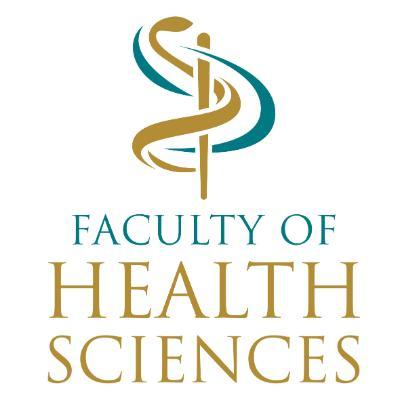How obesity plaques the private sector & burdens Health Economics in SA
-
4.1. 1 Priceless SA Researchers involved: Evelyn Thsehla , Research Director. Micheal Boachie, Health Economist.
The team at the research to policy unit, PRICELESS SA has been highly productive over the past few months, with several important publications that relate to NH
The first two manuscripts are important in the context of the burgeoning disease burden of non-communicable diseases. The tsunami of obesity- related diseases now outstrip HIV in South Africa (SA) and are largely driven by commercial determinants. This policy-related research is highly relevant to policy in terms of NHI whilst the minimal resource allocation currently provided to address the prevention, treatment, and rehabilitation of non-communicable diseases.
One of the manuscripts, led by Dr Micheal Boachie and Dr Evelyn Thsehla, assesses the massive costs of obesity in the public sector, which amount to R33.2bn in 2020. This is a serious underestimate for many reasons and only represents costs of managing the conditions themselves and does not include the indirect costs borne by the families of these patients.
The ZAR 33 billion public price tag represents 15.38% of government health expenditure. The largest cost drivers include cancers, respiratory diseases, digestive diseases, diabetes, and high blood pressure.
Priceless SA Researchers involved: Agnes Erze, Senior Researcher. Ciaran Kohli-Lynch, Consultant.
PRICELESS has also published two innovative manuscripts detailing SA- specific integration of ethics principles from the NHI white paper, into a model framework for the process of priority setting, based on SA’s shared values.
The first paper outlines the framework that was developed by a SA multi-sectoral working group, while the second looks at the original methods that were used to develop and refine the Framework. Both of these articles, funded by the Wellcome Trust Grant, are important for SA, which has noted on several occasions its intent to introduce Health Technology Assessment as a process for priority setting.
The second paper by Dr Ciaran Kohli-Lynch with PRICELESS PhD candidate, Agnes Erzse, calculated the direct public healthcare costs associated with hypertension to be R 10 billion, while societal costs were estimated to be R 29 billion.
This framework is potentially a useful tool as it provides additional considerations beyond cost effectiveness for adoption of new interventions.
Priceless SA Researchers involved: Aviva Tugendhaft, Senior Researcher.
The third paper of research shows that involving communities in a deliberative process is critical for strengthening the priority-setting process for health services.
Led by PhD candidate, Aviva Tugendhaft, the paper was published on modifying and using the Choosing All Together (CHAT) tool in a rural area in South Africa.
The work found that policymakers may benefit from deliberate inclusion of the public – in this case related to Maternal and Child Health. Tugendhaft’s analysis found that participatory methods are feasible in the modification of a public engagement tool like CHAT and can be applied in different country contexts to ensure these tools are relevant and acceptable.
4.2 Read more PRICELESS SA research!
4.2.1 "Estimating the healthcare cost of overweight and obesity in South Africa"
Wits research involved: Michael Boachie, Evelyn Thsehla, Ciaran Kohli-Lynch, Karen Hofman
Overweight and obesity presents a major burden to health systems and to society in South Africa. Collectively, these conditions are overwhelming public healthcare. This is happening when the country has embarked on a journey to universal health coverage, hence the need to estimate the cost of overweight and obesity.
4.2.2 "Hypertension in the South African public healthcare system: a cost-of-illness and burden of disease study"
Wits researchers involved: Ciaran Kohli-Lyncha, Agnes Erzse, Karen Hofman
High blood pressure (BP), or hypertension, caused an estimated 10.7 million deaths worldwide in 2015 and rates were higher in low-income and middle-income countries. This research paper quantifies the health and economic burden of hypertension in the South African public healthcare system.
4.2.3 "Developing and piloting a context-specified ethics framework for health technology assessment: the South African Values and Ethics for Universal Health Coverage approach"
Wits researchers involved: Susan Goldstein, Aviva Tugendhaft, Karen Hofman
The scarcity of ethics analysis in HTA to debates about appropriate methodology and the need for ethics frameworks that are relevant to local social values. The “South African Values and Ethics for Universal Health Coverage” (SAVE-UHC) project models an approach that countries can use to develop HTA ethics frameworks that are specific to their national contexts.
4.2.4 "CHAT SA: Modification of a Public Engagement Tool for Priority Setting for a South African Rural Context"
Wits research involved: Aviva Tugendhaft, Nicola Christofides, Kathleen Kahn, Agnes Erzse, Rhian Twine, Audrey Khoza, Karen Hofman
Globally, as countries move towards universal health coverage (UHC), public participation in decision-making is particularly valuable to inform difficult decisions about priority setting and resource allocation. This paper modifies a specific deliberative engagement tool – the CHAT (Choosing All Together) tool for use in a SA rural setting.


